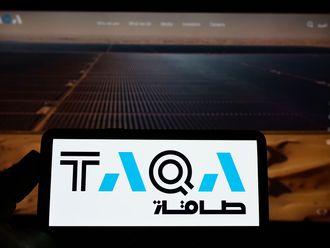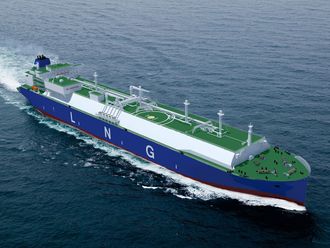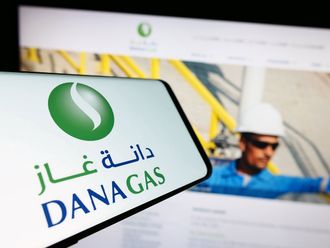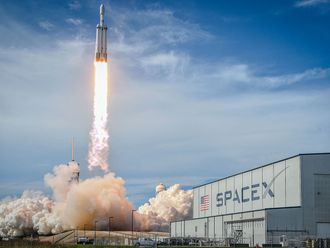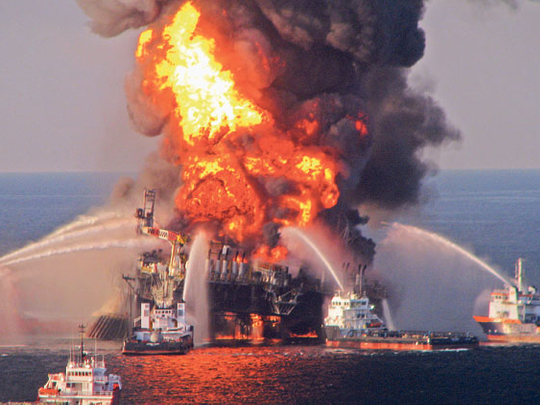
New Orleans: Federal regulators did not need last week's explosion aboard a state-of-the-art rig to know the offshore drilling industry needed new safety rules.
Dozens of deaths and hundreds of injuries over the last several years had already convinced them that changes were needed.
The US Minerals and Management Service is developing regulations aimed at preventing human error, which it identified as a factor in many of the more than 1,400 offshore oil drilling accidents between 2001 and 2007.
What caused last Tuesday's massive blast off the Louisiana coast is unknown. On Friday, Coast Guard officials suspended the three-day search for 11 workers missing since an explosion rocked the Deepwater Horizon, saying they believe the men never made it off the platform that erupted into a giant fireball.
Officials said four workers critically injured in the explosion are doing much better.
Coast Guard Rear Admiral Mary Landry said two of the workers are now out of the hospital, and a third is to be released within a couple of days. The fourth worker will remain seven to 10 days, Landry said.
Coast Guard Captain Peter Troedsson said he spoke with all the workers' families about the decision to suspend the search before announcing it to the media.
"I'm a father and husband, and I have done this a few times before. It's never easy. Your heart goes out to these people," Troedsson said.
The Coast Guard says it will resume the search if any ships in the area see anything, but the workers' chances of survival had seemed slim well before Friday's announcement.
"The time of reasonable expectation of survivability has passed," Landry said.
The 11 missing workers came from Texas, Louisiana and Mississippi. The Coast Guard has not released their names, though several of their families have come forward.
Scott Bickford, a lawyer for the family of missing worker Shane Roshto, said Roshto's wife, Natalie, had been staying with other workers' relatives at a hotel in suburban New Orleans but returned home to Mississippi on Friday morning.
"Natalie has pretty much accepted the fact that her husband is not coming back," Bickford said.
Karl Kleppinger Sr, whose 38-year-old son, Karl, was one of the 11 missing workers, said he doesn't blame the Coast Guard for calling off the search.
"Given the magnitude of the explosion and the fire, I don't see where you would be able to find anything," he said.
Steven Newman, chief executive of Transocean Ltd, which owns the rig, said Friday night that eight of the nine missing Transocean workers were part of the crew that operated the platform's drills.
The other two workers were employees of a BP contractor.
Newman said the company would continue to assist investigators in determining the cause of the blast.
As the search was ending, oil company crews were trying to clean up the environmental mess created by the Deepwater Horizon, which finally sank Thursday.
The other 115 crew members made it off the platform. Several were hurt but only two remained hospitalised Friday. The most seriously injured worker was expected to be released within about 10 days.
Costly distraction
The rig was the site of a 2005 fire found to have been caused by human error. An MMS investigation determined that a crane operator on the rig had become distracted while refuelling the crane, allowing diesel fuel to overflow.
Records show the fire was quickly contained, but caused $60,000 (Dh220,380) in damage to the crane.
An MMS review published last year found 41 deaths and 302 injuries out of 1,443 oil-rig accidents from 2001 to 2007.
An analysis of the accidents found a lack of communication between the operator and contractors, a lack of written procedures, a failure to enforce existing procedures and other problems.
"It appears that equipment failure is rarely the primary cause of the incident or accident," the report said.
As a result of the findings, the MMS is developing new rules that would require rig operators to develop programmes focused on preventing human error, an area that received relatively little attention in the past.
The agency, which has yet to implement the new rules and is currently reviewing the public's comments on the proposal, also suggested audits once every three years on programmes to prevent human error.
BP PLC, which leased the Deepwater Horizon, opposes what it says are "extensive prescriptive regulations."
"We believe industry's current safety and environmental statistics demonstrate that the voluntary programmes implemented... have been and continue to be very successful," said Richard Morrison, a vice president with BP America in a September letter opposing the proposed rules.
Environmentalists say that while new technology touted by oil industry executives continues to improve, people still have to oversee those devices and human error remains a widespread problem.
"You can't outlaw human error," Richard Charter, a senior policy adviser with Defenders of Wildlife, who has been involved in drilling issues for 30 years, said of Tuesday's explosion.
"It's one of the sidebar issues now emerging for the Horizon incident — these are common incidents and this was just a bigger one."
Opponents of President Barack Obama's plan for more offshore drilling, particularly off the East Coast, say the explosion on the Deepwater Horizon should be taken as a warning to slow the fervour to "drill, baby drill."
"I would hope it would serve as another wake-up call on this issue that there is no such thing as safe oil drilling," said Sara Wan, a member of the California Coastal Commission, a state regulatory agency.
"Once that oil starts leaking in the ocean, that damage is irreversible. You just look at what happened with Exxon-Valdez — they're still feeling the effects of it. There's no real way to clean it up."
Not budging
Obama showed no sign of budging on Friday. Spokesman Robert Gibbs said the president still believes increasing domestic oil production can be done safely, securely and without harming the environment.
"I don't honestly think it opens up a whole new series of questions, because, you know, in all honesty I doubt this is the first accident that has happened and I doubt it will be the last," Gibbs said.
On March 31, Obama called for new offshore drilling in the Atlantic Ocean from Delaware to central Florida, plus the northern waters of Alaska.
He also wants Congress to lift a drilling ban in the eastern Gulf of Mexico.
Interior Secretary Ken Salazar said Friday that the Obama administration's drilling plan would assess potential risks and benefits of any offshore site before drilling is pursued. No new lease sales are planned before at least 2012.


